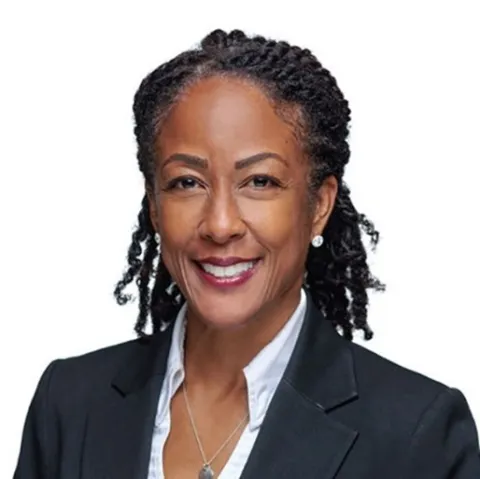The Daniel L. and Irma Evans Endowed Lectureship provides an opportunity to deepen the understanding of engineering by exposing students and practicing engineers to the concepts, challenges, concerns and methods they will interact with throughout their careers.
Dan, Roger and Robert Evans established the endowed lecture in 1983 to memorialize and honor the human and broad societal outlook of their parents.
2025 lecture
Bridging Environmental Research, Policy and Community Engagement for a Sustainable Future

Featuring Dr. Kimberly L. Jones, PhD, F. AEESP, BCEEM
Associate Provost, Office of the Provost and Chief Academic Officer
Professor, Department of Civil and Environmental Engineering Howard University
About the speaker
Dr. Kimberly L. Jones is Associate Provost for Faculty Affairs and a Professor in the Department of Civil and Environmental Engineering at Howard University. She holds a B.S in Civil Engineering from Howard University, a M.S. in Civil and Environmental Engineering from the University of Illinois and a Ph.D. in Environmental Engineering from The Johns Hopkins University. Her research focuses on water and wastewater quality, environmental policy, membrane separations, global water treatment and environmental justice.
Dr. Jones served as chair of the U.S. EPA’s Chartered Science Advisory Board and holds leadership roles with the National Science Foundation and the National Academies of Sciences, Engineering, and Medicine. She is also a Presidential Appointee to the Board of Directors of the National Institute of Building Sciences (NIBS), where she advises on infrastructure and environmental resilience. Her work often centers on integrating equity into environmental research on policy.
She has received numerous honors, including the NSF CAREER Award, Howard University’s Researcher of the Year and Essence Magazine’s Top Women Achievers award.
Abstract
Clean and reliable water is essential for healthy communities, yet access to safe water remains uneven — particularly in underserved areas. Across the country and around the world, communities face challenges like aging infrastructure, water contamination and climate-related disruptions.
This lecture will explore how engineering research can support more sustainable and equitable water systems. Dr. Kimberly L. Jones will share case studies from her work in water treatment, source protection and resource recovery. These examples highlight the importance of aligning scientific research with community priorities and policy goals to create lasting, equitable solutions.
The talk will also examine how environmental justice principles can be built into research and design, ensuring that new solutions meet the needs of the communities most affected by water insecurity.
View past lecturers